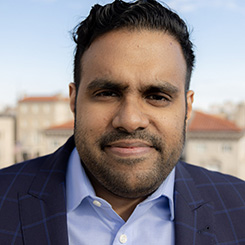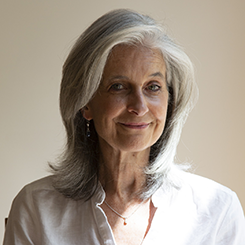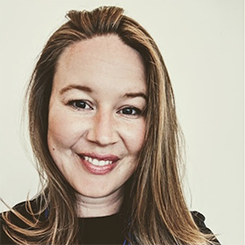
- This event has passed.
The mature mind: Aging resiliently
May 17, 2023 @ 3:00 pm - 4:00 pm

Everyone has a different idea of what it means to age well. Some people place the highest value on independent living, while others want to stay as close as possible to family and friends. One thing we all share is a desire to maintain our mental health and sharpness, but it can be difficult to know which actions — exercise, brain games, diet — to pursue with confidence as we get older.
What is clear is that attitudes toward aging matter, and the earlier we start thinking seriously about how we want to navigate our own aging process and taking steps to achieve our goals, the better.
On Wednesday, May 17, join AARP’s Vijeth Iyengar and bioethicist Tia Powell to discuss how different areas of the brain and mental abilities change over time, the role of neuroplasticity and learning in healthy aging, and what we all need to know neurodegenerative conditions like Alzheimer’s disease, including caring for people with dementia. This is a conversation for anyone keen to push back against ageism and take care of their brains for the long haul.
Speakers:
Vijeth Iyengar, Director of Global Aging, AARP

A cognitive neuroscientist by training, Vijeth Iyengar leads cutting-edge research and drives global aging policy at AARP. He previously served as a career civil servant, spanning three administrations in the US federal government — including as brain health lead and technical advisor to the deputy assistant secretary for aging and a policy advisor at the White House Office of Science and Technology Policy. Iyengar has contributed to the National Academy of Medicine (NAM) Perspectives and JAMA Health Forum, among other outlets.
Tia Powell, Bioethicist, Albert Einstein College of Medicine

Tia Powell holds the Shoshanah Trachtenberg Frackman Chair in Bioethics at Albert Einstein College of Medicine, where she is a professor of psychiatry and of epidemiology, division of bioethics. Her scholarship focuses on dementia, public health policy related to pandemic response, end-of-life care and bioethics education. She served four years as executive director of the New York State Task Force on Life and the Law, the state’s bioethics commission, and has worked with the National Academies of Medicine and Centers for Disease Control and Prevention. She is the author of Dementia Reimagined, a cultural and medical history of dementia and Alzheimer’s disease.
Moderator:
Emily Underwood, Science Content Producer, Knowable Magazine

Emily Underwood has been covering science for over a decade, including as a neuroscience reporter for Science. She has a master’s degree in science writing from Johns Hopkins University, and her reporting has won national awards, including a 2018 National Academies Keck Futures Initiatives Communication Award for magazine writing.
This event is part of an ongoing series of live events and science journalism from Knowable Magazine and Annual Reviews, a nonprofit publisher dedicated to synthesizing and integrating knowledge for the progress of science and the benefit of society.